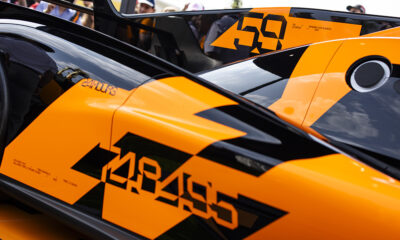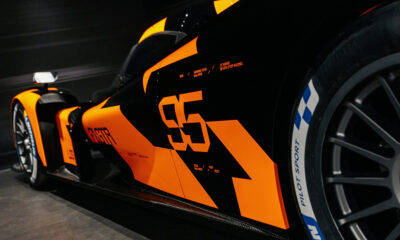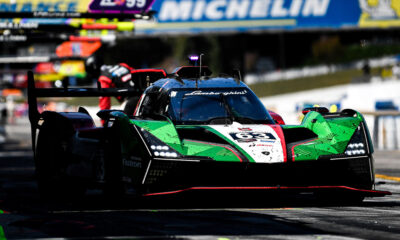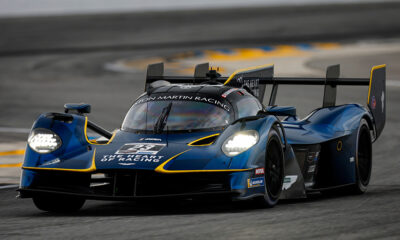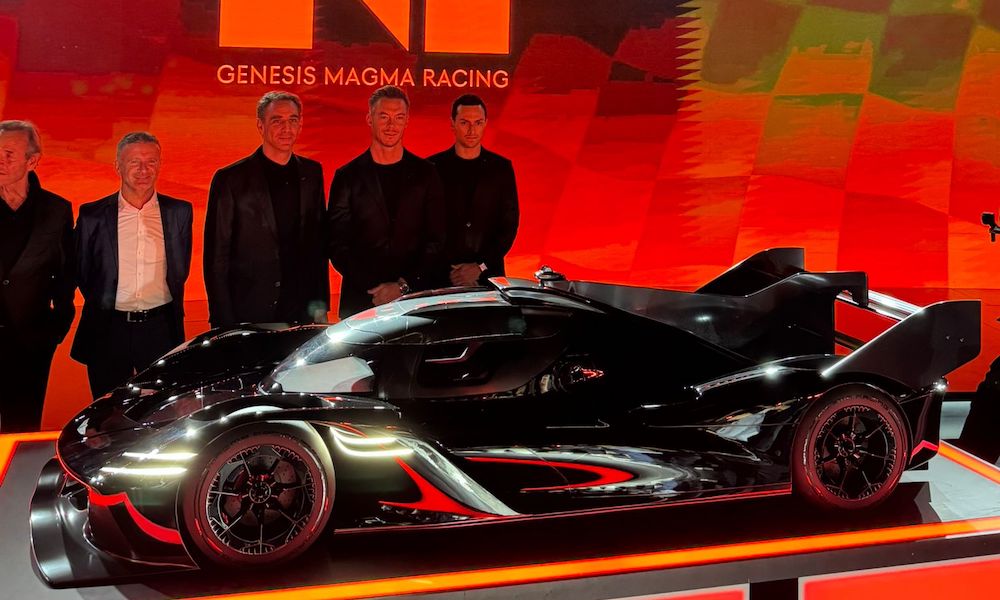
Photo: Davey Euwema
Genesis Magma Racing team principal Cyril Abiteboul has affirmed the team’s commitment up to and potentially beyond the end of the current LMDh rules cycle in 2029, describing the Korean manufacturer’s new involvement in top-class sports car racing as a “long term” project.
Abiteboul, along with newly signed drivers Pipo Derani and Andre Lotterer and other senior Genesis figures, on Wednesday unveiled the GMR-001 Hypercar during a launch event in Dubai.
The Oreca-chassised LMDh car is set to debut as part of a two-car effort in the FIA World Endurance Championship in 2026, followed by a similar program in the IMSA WeatherTech SportsCar Championship a year later.
Speaking to invited media gathered in Dubai, Abiteboul outlined Genesis’ desire for continuity and stability in its racing efforts, pointing to sister brand Hyundai’s longstanding involvement in rallying as an example.
“We’ve been in WRC for 12 years with continuity,” Abiteboul said.
“So when we enter into something, first it is to make it work, and secondly, with stability. We know that performance takes time to build through people, through technology, through experience and expertise.
“We are not here to do just one thing and move on to something else. We are here to stay, to do a good job, hopefully to be competitive, and to build up also the narrative.
“Because also from a marketing standpoint, if you switch your program every year, every other year, you don’t build.
“And that is the connection between the world of heritage racing, which is endurance, and Genesis Magma is very much what we want and intend to do, and we can only do that in the long term.”
The ACO announced in June that it would extend the current homologation cycle for cars in the Hypercar class for two additional years through until the end of the 2029 WEC season, with IMSA subsequently following suit for GTP.
Abiteboul noted that the ACO’s decision came as “good news” for Genesis, but stated that the brand was ” already highly considering entering irrespective of that.”
WRC-Based V8 Engine to Power GMR-001
The GMR-001 is set to be powered by a 3.2-liter, twin-turbocharged V8 engine based on Hyundai’s current turbocharged inline-four that it uses in the World Rally Championship.
Abiteboul described the use of the WRC engine as a “shortcut” to help Genesis get up to speed considering its lack of prototype experience, pointing out that a number of LMDh manufacturers that also use engines based on existing designs.
“If you look at actually all the competitors were, when they started their program, most of them had already their engine up and running,” said Abiteboul.
“So that’s why we decided to go for that shortcut of using the WRC engine as a base engine which may sound a bit straightforward but actually it’s a good shortcut, a shortcut that has been used by other people.
“So that side is critical but I think there is a way forward.”
On the chassis side, Abiteboul outlined that Genesis held talks with all four LMDh manufacturers (Ligier, Multimatic, Dallara and ORECA) as part of a “thorough assessment” before selecting the latter of the four parties.
“Motorsport at the end of the day is all about people and passion,” he said.
“If you are not sharing the same passion and motivation, the same cultural references, you are missing out on something.
“So yeah, very confident with the choice of going with Hugues [de Chaunac, ORECA president] and in particular complementing that with the own people and expertise that we have in Hyundai Motorsport.”
Genesis Taking “Staged Approach” to Global LMDh Program
When asked by Sportscar365 why the decision was made to move into the WeatherTech Championship a year after entering WEC, Abiteboul explained that the “staged approach” will allow Genesis to first learn on its own before committing to a relationship with a partner team.
“There is a proximity with WEC,” he said.
“But having said that, being the car maker that we are, the [sales] numbers we have in the States, that’s very clear that the U.S. market is very important.
“We have no choice but to go in IMSA, but we thought that this sort of staged approach was probably the right thing to do.
“We know also that with IMSA, it was always going to be through a partner. And I know that obviously relying on partnership is nice, but it can also lead to misinterpreting where you stand from a competitiveness perspective.
“Is it down to the engine, is it down to the drivers, is it down to the car, or is it down to the racing team?
“So we want also to do it the hard way a bit not fearing too much to fail, and learning.
“You can only do that by learning, by [doing it] yourself, and that’s something that was only possible with WEC, not IMSA.”



















